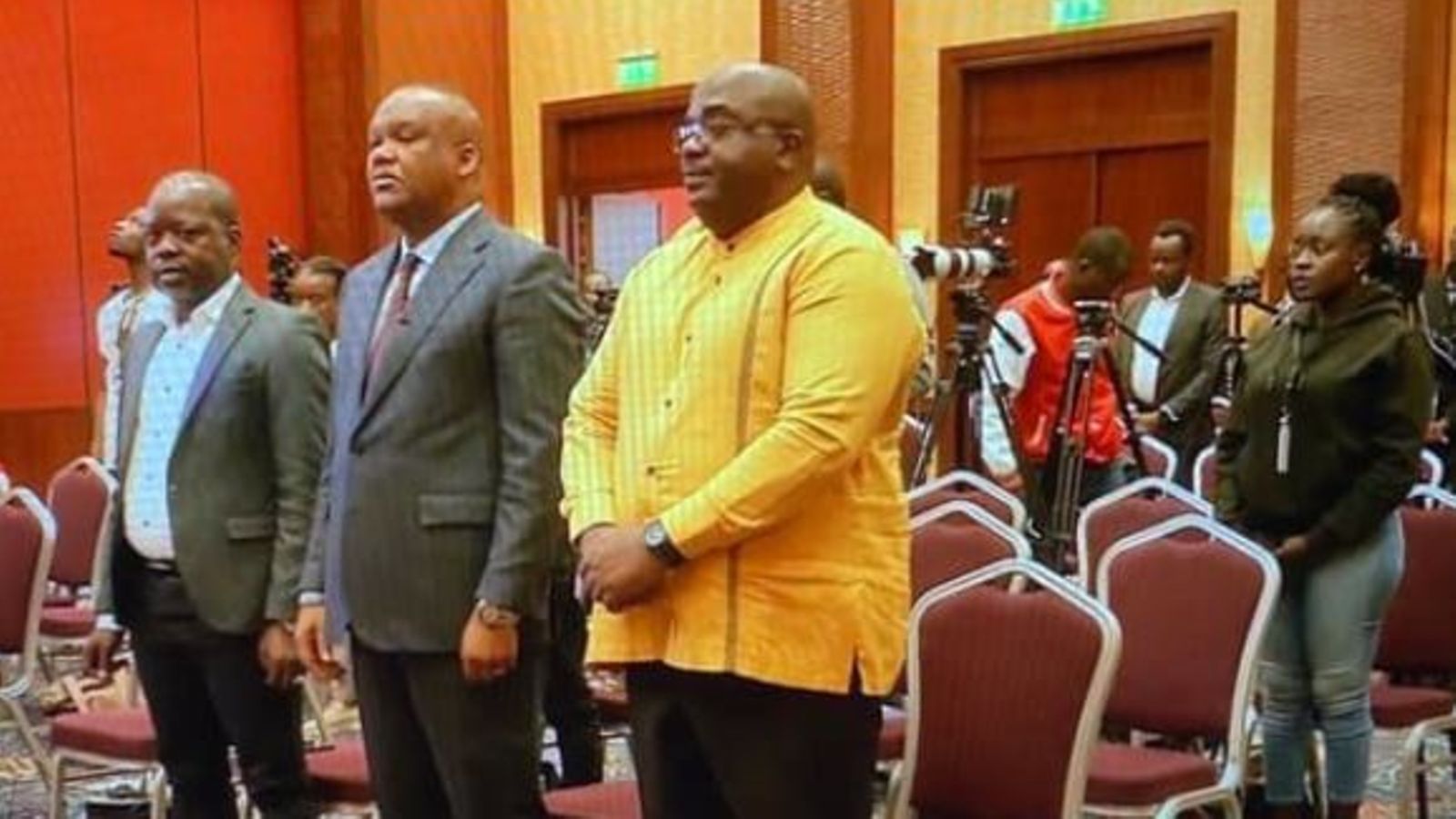
Corneille Nangaa, a Congolese opposition figure in exile, declared the establishment of a political-military alliance with the M23 rebels and various armed groups aimed at salvaging the country, amidst heightened tension ahead of the December 20 elections in the Democratic Republic of Congo (DRC).
The announcement was made by Nangaa in Nairobi, alongside M23’s “president,” Bertrand Bisimwa, at a hotel in the Kenyan capital.
Following a period of dormancy, the M23 (“March 23 Movement”) rebels reemerged in late 2021, alongside support from the Rwandan army, capturing extensive territories in the North Kivu province in eastern DRC.
This resurgence led to the displacement of over a million people, according to the United Nations.
Nangaa, once the head of the DRC’s electoral commission during the 2018 polls and currently living in exile, appealed for a coalition among “political, social, and military forces” to rebuild the nation and reinstate peace in the conflict-ridden and impoverished central African nation.
He disclosed that nine armed groups, including M23, had already joined his initiative, titled the “Congo River Alliance,” striving for national unity and stability.
He justified the coalition’s formation by citing the prolonged weakness of the Congolese state over three decades and its inability to assert control across the country.
The International Organization for Migration (IOM) reports that approximately seven million Congolese are internally displaced due to armed conflicts and insecurity.
In recent months, clashes between Nangaa and Congolese President Felix Tshisekedi have been a focal point. Nangaa claimed in an October interview with France 24 that a power-sharing agreement was orchestrated between Tshisekedi and former president Joseph Kabila during the 2018 election, which was allegedly certified by leaders from South Africa, Kenya, and Egypt.
During the 2018 election, Martin Fayulu, an unsuccessful candidate, asserted victory with 61 percent of the vote, accusing Kabila and Tshisekedi of engineering an electoral coup.
France’s former foreign minister, Jean-Yves Le Drian, referred to it as an “African-style compromise.”
Ahead of the upcoming election, President Tshisekedi, seeking reelection, denies any claims of fraudulent dealings with his predecessor.
